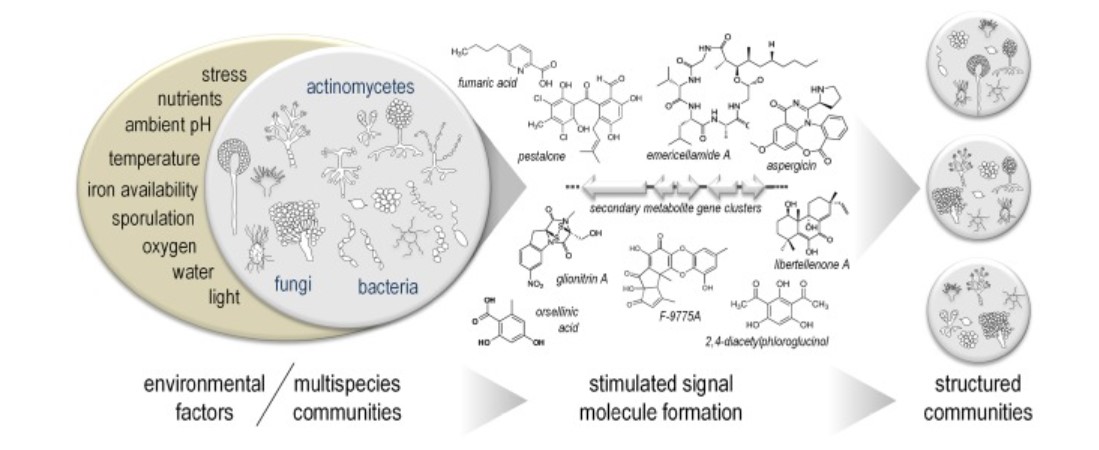Complex interactions exist between microorganisms that induce each other to synthesize structurally diverse metabolites. It is challenging to mimic the complex interactions between microorganisms by changing culture conditions. Therefore, establishing microbial co-culture systems that mimic the interactions between microorganisms can lead to secondary metabolites that cannot be produced when cultured alone.
Microbial co-culture induces the activation of silent fungal gene clusters in three main ways. The first way is that one microorganism first synthesizes a precursor or substrate, and the other is that the microorganism uses the synthesized precursor or substrate to synthesize a specific metabolite. The second way is that one microorganism synthesizes a signal molecule that induces the expression of a silent gene cluster in another microorganism to synthesize a specific metabolite. The third way is the activation of silent genes by co-cultured microorganisms through physical contact between cells.
Mixing and culturing two or more microorganisms by simulating the natural environment is an effective strategy to activate silent fungal gene clusters. Microbial co-culture has excellent potential to generate new compounds and is a simple and easy method to mine microbial secondary metabolites. Lifeasible can provide co-culture system construction services, identify newly generated compounds, and analyze microbial interaction mechanisms.
 Figure 1. Microorganismic multispecies communities form secondary metabolites. (Netzker T, et al., 2015)
Figure 1. Microorganismic multispecies communities form secondary metabolites. (Netzker T, et al., 2015)
Lifeasible helps customers identify new compounds produced upon activation of silent fungal gene clusters and analyze the mechanisms of microbial interactions by constructing fungal-fungal or fungal-bacterial co-culture systems. As your trusted partner, we can meet your fungal phylogenetic analysis needs and provide you with efficient and high-quality services. If you want to know the details, please contact us.
Reference
Lifeasible has established a one-stop service platform for plants. In addition to obtaining customized solutions for plant genetic engineering, customers can also conduct follow-up analysis and research on plants through our analysis platform. The analytical services we provide include but are not limited to the following:
Get Latest Lifeasible News and Updates Directly to Your Inbox
Mechanism of Action of Plant Resistosome NRC4
May 20, 2025
Mechanisms Regulating Plant Chloroplast Biogenesis
April 15, 2025